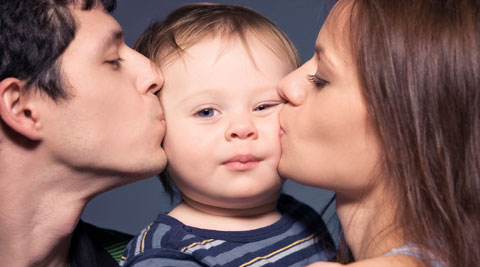Manipulative parents leave kids in distress later
Teenagers whose parents exert more psychological control over them have more problems establishing friendships and romantic relationships later, found a study.
 Parents’ psychological control involved tactics like using guilt, withdrawing love, fostering anxiety, or other tactics aimed at controlling youths’ motivations and behaviour, pointed out the researchers at the University of Virginia in the US.
Parents’ psychological control involved tactics like using guilt, withdrawing love, fostering anxiety, or other tactics aimed at controlling youths’ motivations and behaviour, pointed out the researchers at the University of Virginia in the US.
Teenagers whose parents exert more psychological control over them have more problems establishing friendships and romantic relationships later, found a study.
The researchers looked at whether parents’ greater use of psychological control in early adolescence can hinder teenagers’ development of autonomy in relationships with peers.
Parents’ psychological control involved tactics like using guilt, withdrawing love, fostering anxiety, or other tactics aimed at controlling youths’ motivations and behaviour, pointed out the researchers at the University of Virginia in the US.
“These tactics might pressure teens to make decisions in line with their parents’ needs and motivations rather than their own,” said Barbara A. Oudekerk, a research associate at the University of Virginia.
“Without opportunities to practice self-directed, independent decision-making, teens might give in to their friends’ and partners’ decisions,” added Oudekerk.
The study included 184 teenagers (ages 13 and 18), who reported the degree to which their parents used psychological control.
The parents who exerted more psychological control over the teenaged children when they were around 13, found it difficult in establishing autonomy in relationships with friends, found the study.
The study also assessed teenagers’ ability to reason, express confidence and show warmth in friendships when the adolescents were 18 and 21, and in romantic relationships at ages 18 and 21.
Parents could promote or undermine teenagers’ ability to assert their own views and needs with regard to their close friends and romantic partners, concluded Oudekerk.
The study appeared in the journal Child Development.
Photos





- 01
- 02
- 03
- 04
- 05






















